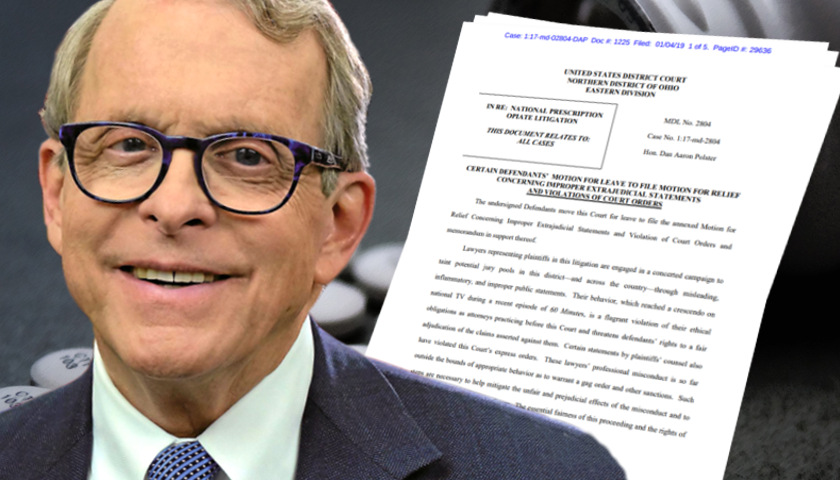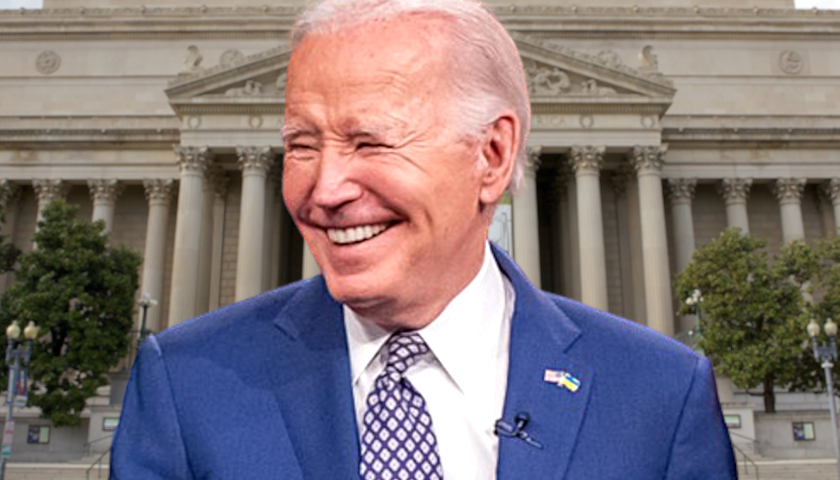Friday, lawyers representing some of the nation’s largest drug manufacturers began an attempt to sanction and silence Governor-elect Mike DeWine, stemming from his involvement in a lawsuit he initiated as Ohio Attorney General. The motion, filed by an amalgamation Big Pharma attorneys, accuse DeWine, along with lawyers Mike Moore and Burton LeBlanc of engaging in “a concerted campaign to taint potential jury polls in this district-and across the country-through misleading, inflammatory, and improper public statements.”
According to the motion, the attempt came as a direct result of an explosive 60 Minutes episode that aired on December 16th featuring attorney Moore. The program detailed the massive lawsuit DeWitt and others are pursuing against the opioid industry.
The 13-minute segment that aired on CBS focused primarily on Moore’s association with the case. The veteran lawyer was directly involved in two of the largest legal settlements in history.
On May 1994, while serving as Attorney General of Mississippi, the Magnolia state became the first state to officially file suit against the tobacco industry. Forty-six other states eventually joined the suit. The Tobacco Master Settlement was agreed to in November 1998. Among many concessions, the tobacco industry would be required to pay over $200 billion dollars to the states over the first 25 years. It is still the largest single settlement In U.S. History.
To a lesser extent, he was also involved in the litigation that followed the 2010 Deepwater Horizon Oil spill, which resulted in the largest environmental fine in history.
Needless to say, his association with Ohio’s case against the opioid industry is a bellwether for how impactful this case could be.
During the interview, Moore states that there is an overwhelming amount of evidence that directly implicates the entire opioid industry. Furthermore, he believes that if they win a verdict against the industry, “…it could bankrupt them. It’d put them outta business.”
DeWine concurred with Moore’s analysis, further noting, “one year we had close to a billion – a billion pain meds prescribed in the state of Ohio, you know, 69 per man, woman, and child in the state.”
While DeWine did not name the year, the National Institute on Drug Abuse (NIDA) research shows that in 2015, 9.96 million opioid prescriptions were written in the state of Ohio for 11.61 million Ohioans, roughly 86 prescriptions per 100 people.
NIDA also notes that Ohio ranks among the top five states for “opioid-related overdose deaths.” In 2016 3,613 Ohioans died from causes relating to opioid overdose – almost three times the national average.
The opioid industry defended their gag order against the Dewine, Moore, and Le Blanc by invoking Rule 3.6 of the Ohio Rules of Professional Conduct. the rule states, “a Lawyer…shall not make an extrajudicial statement that…will have a substantial likelihood of materially prejudicing an adjudicative proceeding in the matter.”
Essentially, that a lawyer cannot disseminate to the press information that he or she knows will materially impact a jury’s ability to be impartial.
However, within Rule 3.6, under 3.6 Comment #1, it explicitly states that striking a balancing free expression and a fair trial is a “difficult” and that “the public has a right to know about threats to its safety and measures aimed at assuring its security.”
The state could attempt to have this motion dismissed on the grounds that the information discussed in the segment was for the public welfare of the people.
DeWine, Moore, and LeBlanc have yet to comment on the motion.
Watch the 60 Minutes segment:
– – –
Andrew Shirley is a reporter at Battleground State News and The Ohio Star. Send tips to [email protected].





